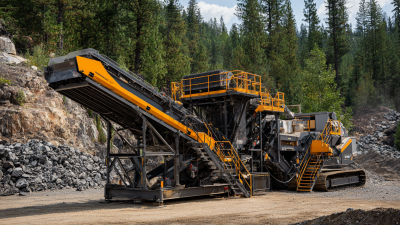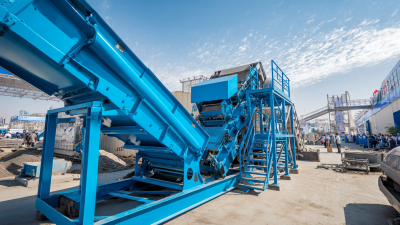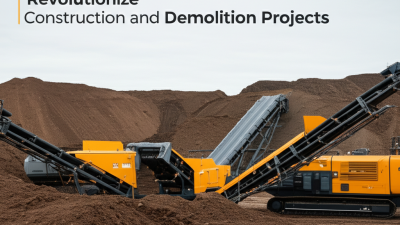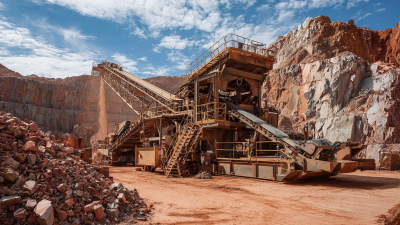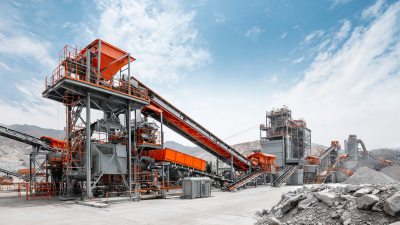In recent years, the construction industry has been undergoing significant transformations aimed at enhancing efficiency and sustainability. A prime example of this evolution is the increasing reliance on Portable Stone Crushers, innovative machines that revolutionize the way construction materials are processed. As Mark Henderson, a leading expert in sustainable construction technology, puts it: "The integration of Portable Stone Crushers not only streamlines operations but also significantly reduces the environmental impact of construction projects."
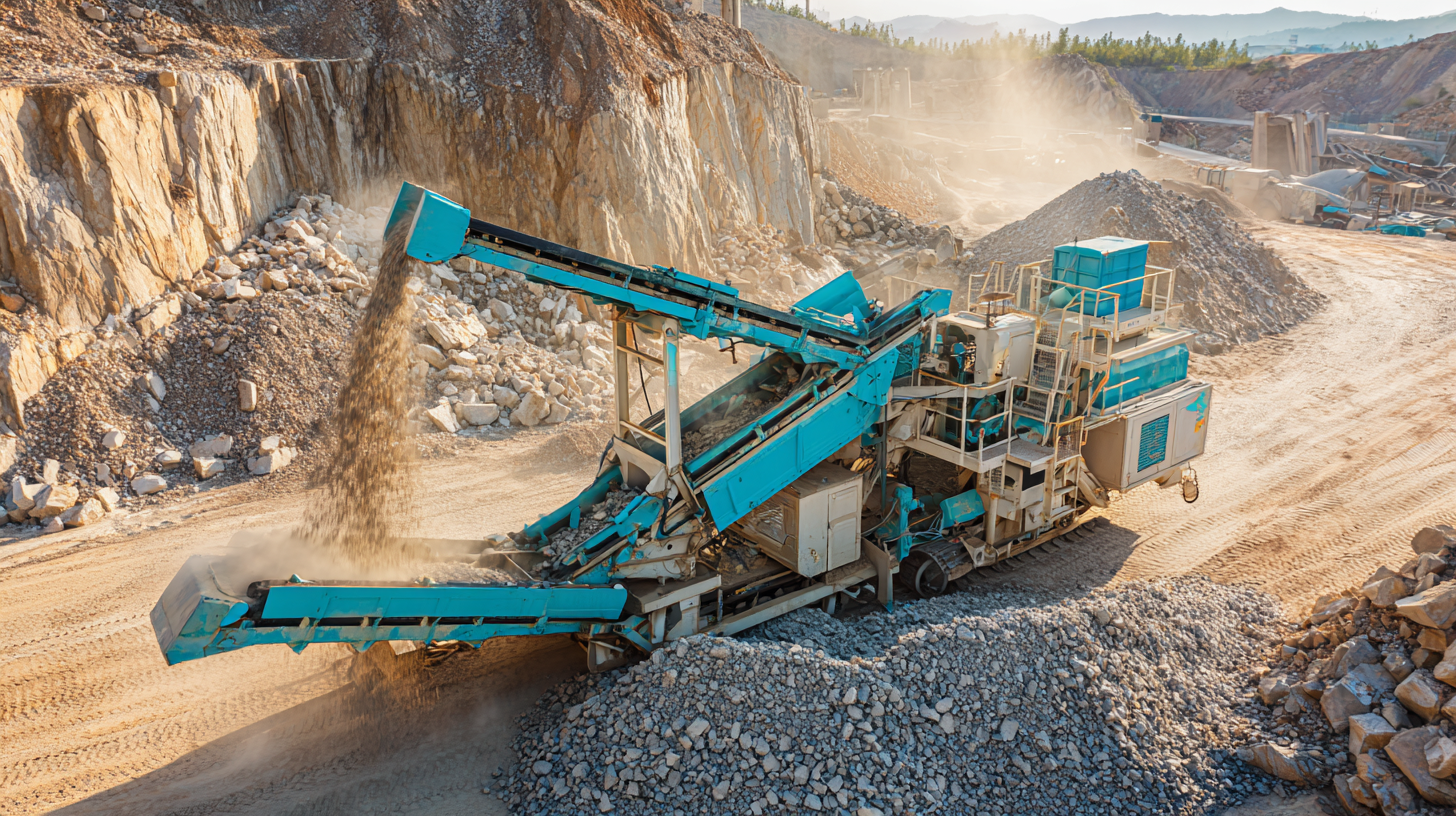
The introduction of these advanced crushers allows for on-site material processing, minimizing transportation costs and emissions associated with traditional methods. This shift not only promotes a more sustainable approach to resource management but also accelerates project timelines, enabling contractors to meet growing demands efficiently. By adopting Portable Stone Crushers, the construction sector can enjoy not just economic benefits, but also a steadfast commitment to environmental stewardship.
As the industry continues to embrace technological advancements, the role of Portable Stone Crushers is poised to become increasingly pivotal. With their ability to reduce waste and lower carbon footprints, these machines are not just a trend; they are essential tools for a more sustainable future in construction.
The modern construction industry is increasingly integrating portable stone crushers to enhance efficiency and sustainability. These machines allow for on-site processing of materials, which significantly reduces transportation costs and downtime. A recent industry report noted that employing portable stone crushers can decrease operational costs by up to 30%, mainly due to reduced transportation needs and improved material reuse on-site.
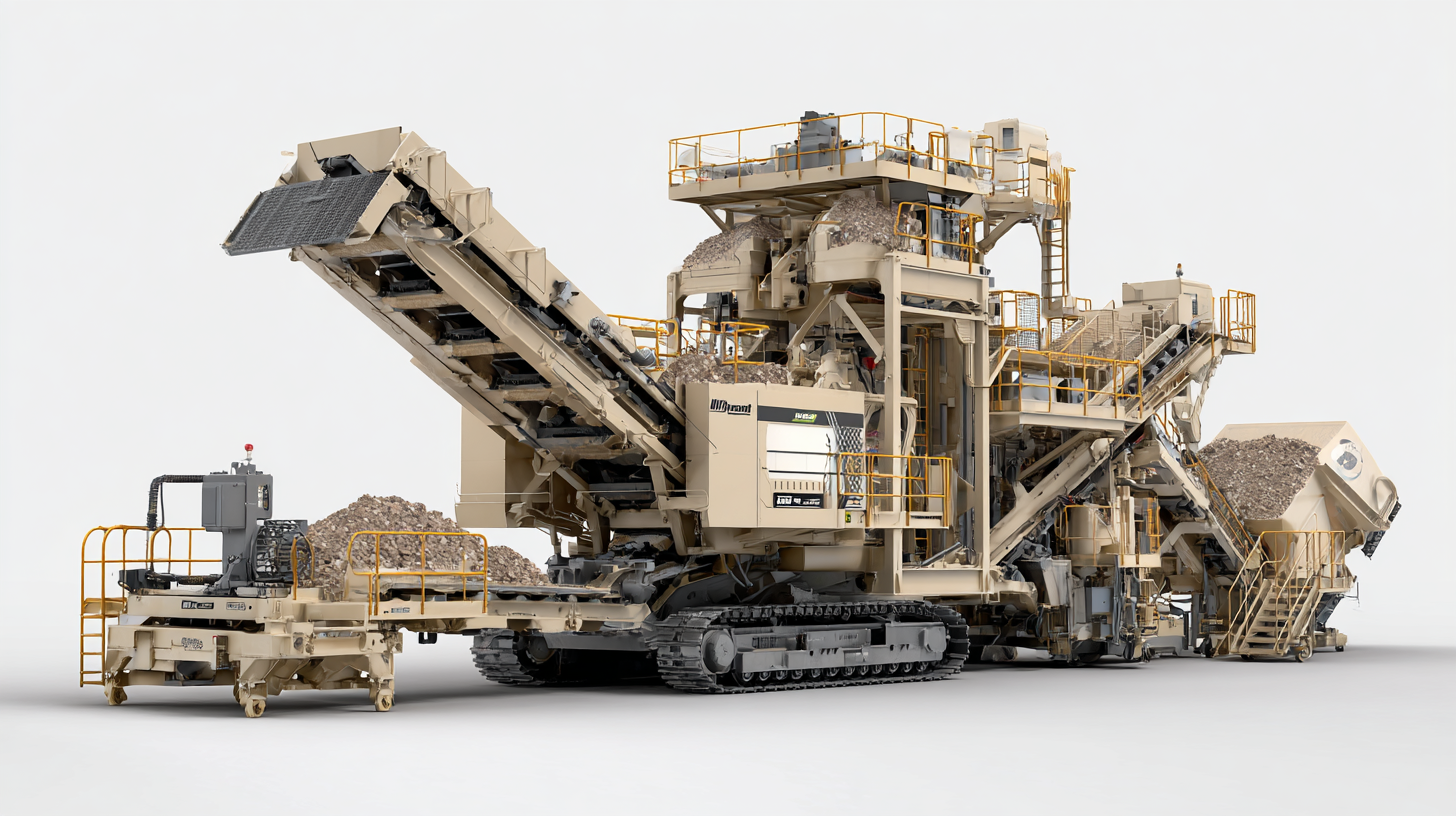
Using portable stone crushers also aligns with sustainability goals. By minimizing the distance materials need to be transported, the carbon footprint associated with construction projects can be significantly reduced. According to the Global Construction and Demolition Waste Management report, approximately 30% of the world's waste comes from the construction sector. The integration of portable crushers allows contractors to recycle up to 75% of materials, turning potential waste into valuable aggregates for new projects.
Tip: When selecting a portable stone crusher, consider factors such as the machine's mobility, energy consumption, and production capacity. Efficient models not only lower costs but also enhance project timelines, making them a vital investment for progressive construction companies.
The evolution of construction technology has birthed innovative solutions aimed at enhancing operational efficiency and environmental sustainability. Among these advancements, portable stone crushers stand out, offering remarkable benefits in terms of quick setup and mobility. These machines are designed for ease of transport, enabling construction teams to set them up on-site within a matter of hours. This rapid deployment drastically reduces downtime, allowing projects to progress swiftly and efficiently.
Moreover, the mobility of portable crushers allows for a flexible response to the changing needs of construction sites. Instead of transporting heavy materials to a centralized crushing facility, these devices can transform raw materials directly at their source. This not only minimizes logistical challenges but also significantly decreases the carbon footprint associated with transporting aggregates. As construction projects grow increasingly dynamic, the ability to adapt to different locations and handle various materials directly on-site underscores the efficiency and sustainability that portable stone crushers bring to the industry.
The construction industry faces significant challenges regarding waste management and sustainability. Portable stone crushers emerge as a vital technology that not only enhances operational efficiency but also minimizes environmental impact. By crushing stone on-site, these machines reduce the amount of construction and demolition waste transported to landfills, aligning with the growing trend toward sustainable practices in construction. Recent reports indicate that enhancing recycling technologies could potentially recover up to 90% of construction waste, transforming it into reusable materials.
Incorporating on-site recycling through portable stone crushers significantly contributes to reducing waste. This approach not only lowers transportation emissions but also lessens the need for new raw materials, effectively decreasing the carbon footprint associated with construction projects. As the global market for construction and demolition waste continues to evolve, adopting these practices becomes increasingly essential. A focus on sustainable waste management findings reveals that utilizing innovative technologies can vastly improve recycling rates and promote a circular economy within the construction sector.
Tips for Sustainability in Construction:
1. Invest in portable recycling technologies to facilitate on-site waste processing and reduce transportation-related emissions.
2. Engage with local recycling facilities to ensure that reusable materials are effectively sorted and utilized in future projects.
3. Educate teams on sustainable practices to foster a culture of environmental responsibility and optimize resource usage in construction activities.
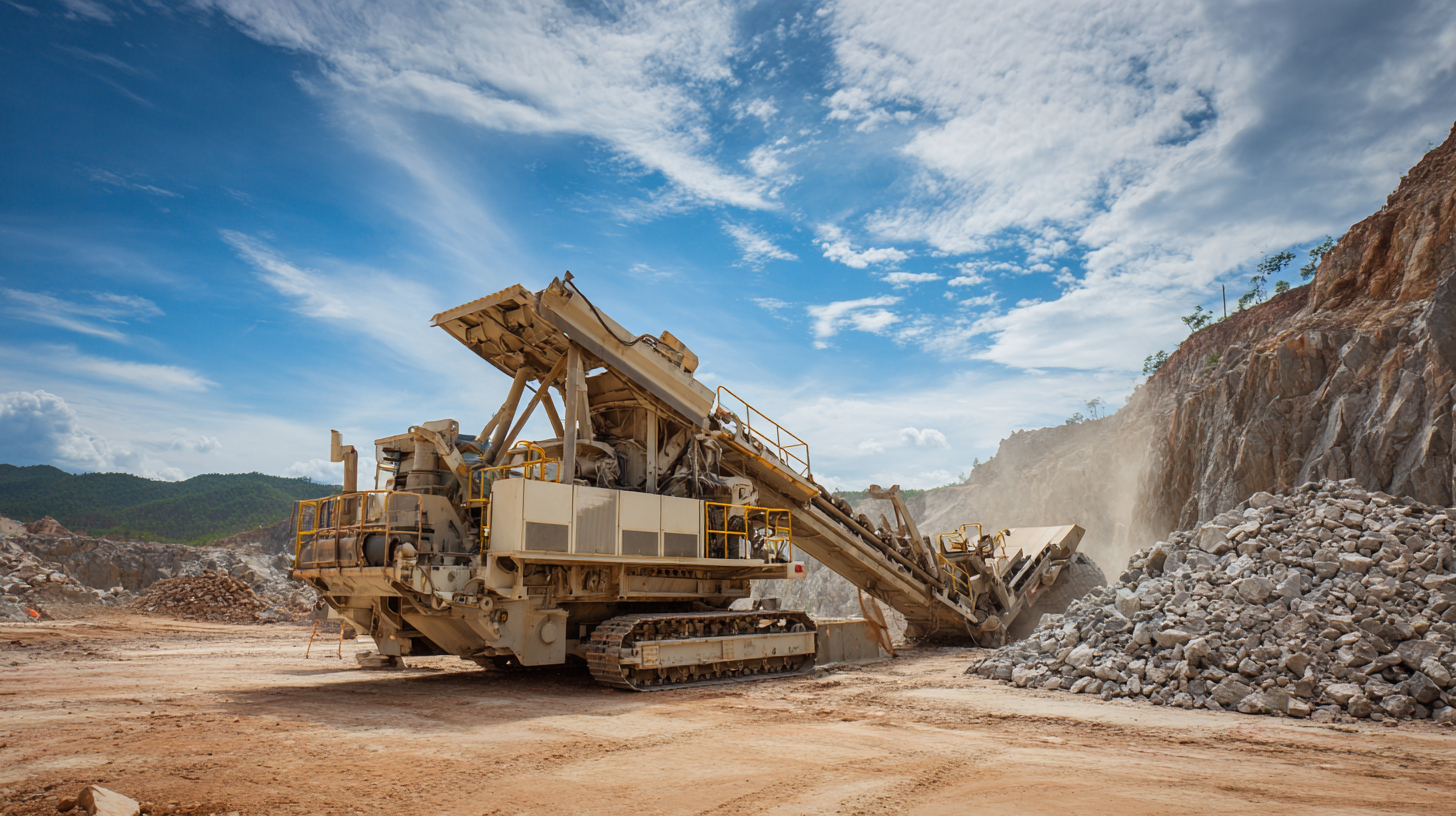 The construction industry is continuously seeking innovative ways to enhance efficiency while reducing costs. One such innovation is the portable stone crusher, a game-changer that significantly lowers transportation and labor expenses. By processing materials on-site, these machines eliminate the need for costly trips to distant quarries, dramatically reducing fuel costs and labor for transporting raw materials. As a result, construction projects can stay on schedule and within budget, maximizing profitability.
The construction industry is continuously seeking innovative ways to enhance efficiency while reducing costs. One such innovation is the portable stone crusher, a game-changer that significantly lowers transportation and labor expenses. By processing materials on-site, these machines eliminate the need for costly trips to distant quarries, dramatically reducing fuel costs and labor for transporting raw materials. As a result, construction projects can stay on schedule and within budget, maximizing profitability.
Tip: To ensure you're making the most of your portable stone crusher, always assess the site conditions beforehand. Knowing the type of materials you'll be working with can help optimize the crushing process and improve overall efficiency.
Additionally, the integration of portable stone crushers promotes sustainability. Reducing transportation routes minimizes carbon emissions, aligning with green building practices. Using locally sourced materials not only lessens environmental impact but also enhances the project's community engagement.
Tip: Regular maintenance of your portable stone crusher is crucial for peak performance. Schedule routine check-ups to avoid unexpected downtimes and ensure consistent production rates, which will keep your project running smoothly.
The construction industry is undergoing a significant transformation with the advent of portable stone crushers. Recent technological advancements have greatly enhanced their designs and features, thereby improving efficiency and sustainability on job sites. For instance, modern portable crushers are equipped with high-capacity screening and separation systems, allowing for the reduction of material handling costs by up to 30%, according to a report by the Construction Industry Institute. This efficiency enables contractors to process materials on-site, minimizing the need for transportation and associated emissions.
Moreover, the integration of smart technology and automation in portable crushers has led to improved operational efficiency. Reports indicate that these advanced machines are often capable of achieving a production rate increase of 20-40% compared to their older counterparts. Features such as real-time monitoring and diagnostics help in optimizing performance and reducing downtime, allowing for quicker project completions. This shift not only supports the economic bottom line of construction projects but also aligns with sustainability goals, as reducing material waste and carbon footprint becomes increasingly crucial in the industry.
